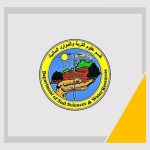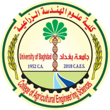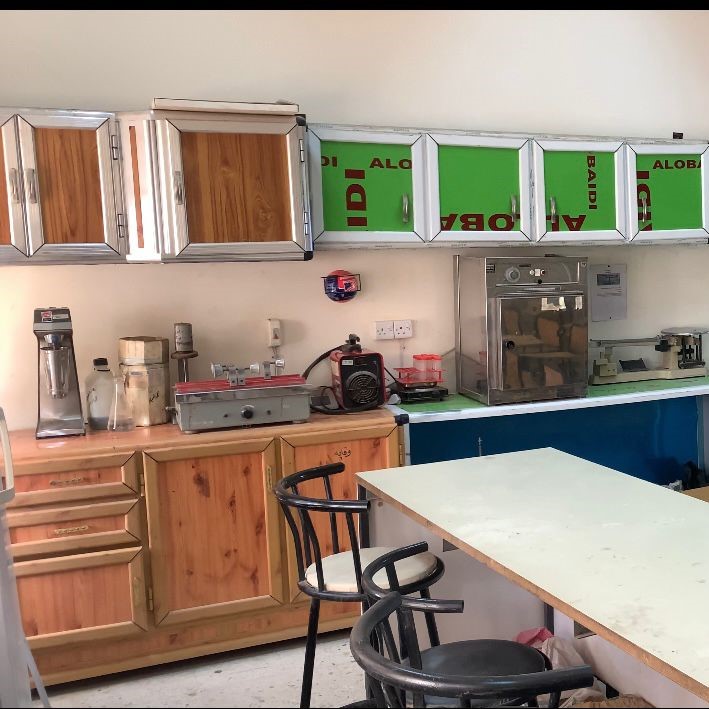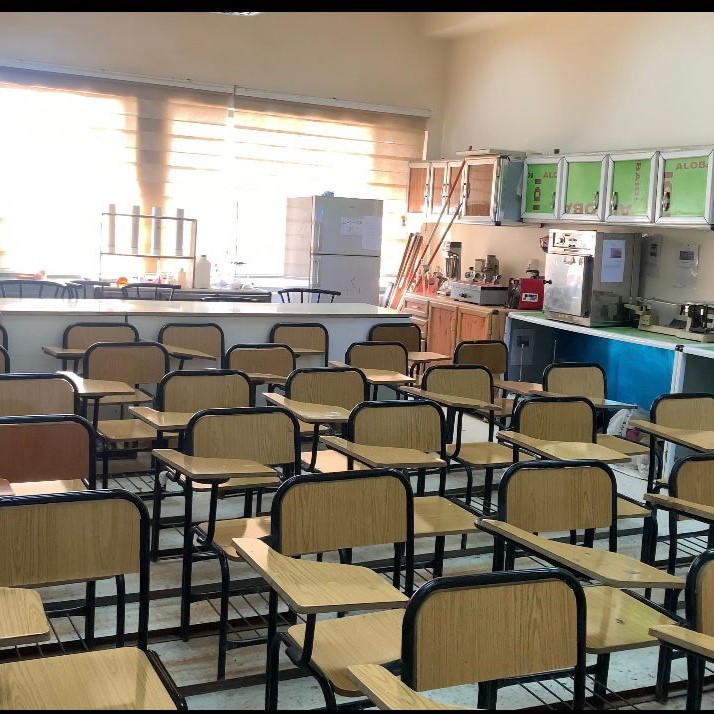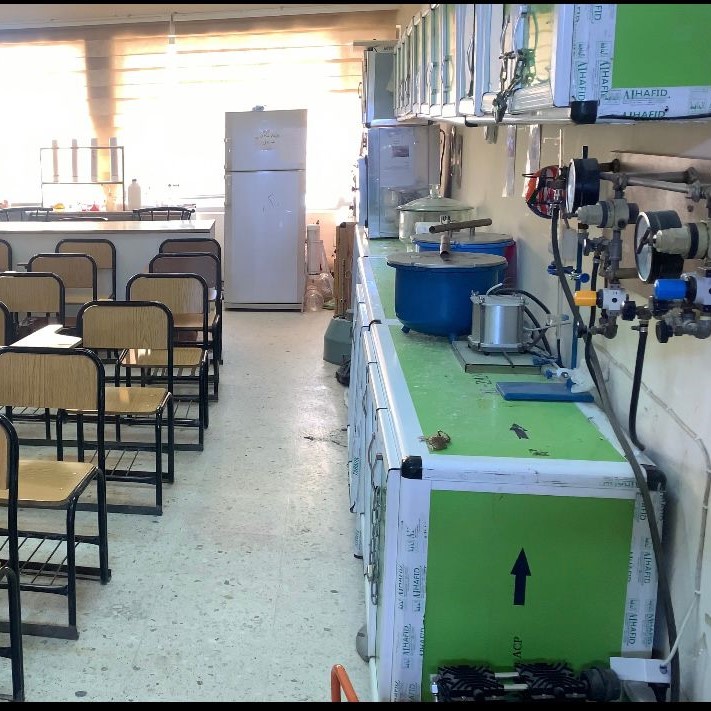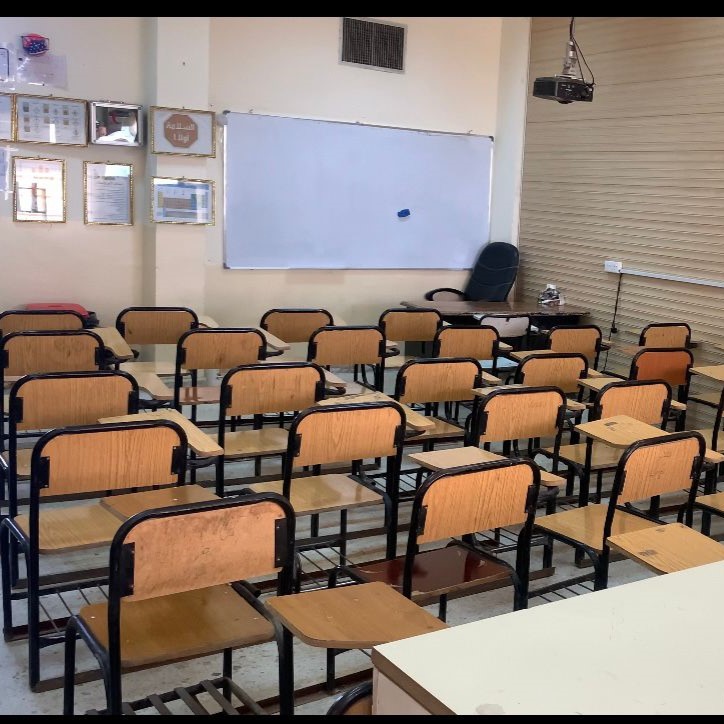Welcome to the Department of Soil Sciences and Water Resources Labs at the College of Agricultural Engineering Sciences, University of Baghdad. Our laboratories are at the forefront of environmental and agricultural sustainability, providing a specialized setting for advanced Soil and Water research. We focus on analyzing soil health, water quality, and resource management to ensure long-term agricultural productivity and ecosystem protection.
The Department of Soil Sciences and Water Resources Labs is a fundamental component of the research infrastructure at the College of Agricultural Engineering Sciences. By utilizing modern analytical techniques, we facilitate innovative Soil and Water research that addresses critical challenges such as salinity, irrigation efficiency, and soil fertility. Our facilities are equipped to support both undergraduate education and complex postgraduate studies.
Below, you can explore the specialized list of laboratories and technical facilities available within our department:
About the Lab
The laboratory is interested in conducting scientific experiments related to reviving soil microscopic organisms, diagnosing microscopic organisms such as bacteria, fungi, and actinomycetes, and working to isolate them.
Special experiments can also be conducted in the field of soil microbiology. like
Estimating the number of organisms A- by the method of dilution and plate counting. B – The most likely counting method.
Measuring soil microbial activity by measuring the amount of CO2.
Biotransformations of nitrogen.
Isolation of azotobacter bacteria.
Isolation of rhizobia bacteria from root nodules of bean plants.
Isolation of algae from soil.
There are a number of devices in the laboratory, such as a number of microscopes, a PH device, incubators, an EC device, an autoclave, scales, and a hood.
The laboratory was established in 1967 so that undergraduate and graduate students, as well as faculty members, would benefit from this laboratory.
Vision, Message, and Objectives of the Lab
Vision:
Preparing department students with high skills in conducting laboratory experiments.
The laboratory seeks to provide a polymerase chain reaction device with a special unit for extracting DNA for the purpose of accurately diagnosing bacteria.
The laboratory aspires to establish a bank of local bacterial and fungal isolates with high efficiency as bio-fertilizers.
Assisting in publishing solid scientific research and graduation research for fourth-year students.
The laboratory aspires to achieve international quality requirements.
Preparing workshops to introduce the laboratory’s activities.
Message:
The Soil Microbiology Laboratory seeks to provide the appropriate place and calibrated scientific equipment for the purpose of undergraduate and postgraduate students conducting experiments related to the effectiveness and role of microbial organisms in soil and carrying out research projects under the supervision of specialized professors who hold the scientific titles of professor and assistant professor, in addition to technicians specialized in operating and maintaining the equipment.
Objectives:
Preparing graduates with sufficient experience in using laboratory equipment.
Preparing graduates with sufficient experience to produce bio-fertilizers.
Contributing to overcoming the difficulties facing students and researchers at the college and university.
Providing the appropriate environment for developing scientific research in line with global scientific development in the field of specialization.
About the Lab
The laboratory is interested in the field of soil physics. It is possible to conduct experiments on soil physics, such as soil texture, apparent and real soil density, and measure the moisture description curve, water conductivity, and soil consistency. The laboratory contains a balance without mattresses, a soil bulk density balance, a shaking device for dry sifting, a device for dispersing soil particles, a section pump, a tensiometer, an automatic shaker, and a pressure cooker. The laboratory was established in 1967 so that undergraduate and graduate students would benefit from this laboratory.
Vision, Message, and Objectives of the Lab
Vision:
The laboratory aims to be the scientific place that provides the scientific environment of academics, technicians and equipment to implement the practical part of the lessons:
Soil physics, irrigation systems technologies, irrigation, drainage, hydrology, soil and water conservation, for students of the department, and irrigation and drainage for students of other departments.
The scientific curriculum (method of work) is a theory that must be understood in a way that ensures that the student learns the scientific and applied foundations of the lesson and prepares graduates who are able to accept the information and benefit from it in the applied aspect.
The extensive information that the student receives from the six lessons is in its nature integrated, ensuring an improvement in the scientific level and an increase in experience in dealing with the field.
Message:
The Soil Physics Laboratory seeks to provide the appropriate place and scientific equipment to help undergraduate students carry out experiments in the prescribed curriculum and to help graduate students carry out their research experiments.
Objectives:
1- Preparing graduates who have sufficient experience in using laboratory equipment
2- Preparing graduates with experience to work in agricultural fields and projects.
3- Contributing to overcoming the difficulties facing students and researchers in the department.
4- Providing the appropriate environment for developing scientific research in line with scientific development in the field of specialization.
About Lab
The laboratory is interested in all specializations of soil chemistry, as experiments can be conducted to study the chemical characteristics and characteristics of the soil, the most prominent of which are:
How to obtain soil solution.
Determination of dissolved ions in soil solution.
Estimating and diagnosing the stages of salinity in soil.
Measuring soil salinity.
Measuring the degree of soil interaction.
Separation of clay minerals.
Estimating the soil’s total and ready-made nutrient content.
Measuring the electrical conductivity of irrigation water.
Plant analysis and analysis.
Estimation of soil calcium carbonate content.
The effect of soil salinity and irrigation water on plant growth.
The laboratory contains a device for measuring soil elements using optical flame technology, an automatic vibrating device, a device for measuring the degree of soil reaction (pH Meter), an electrical conductivity measuring device (EC Meter), a sensitive balance (two levels after the sorter) and an electric oven for drying samples.
The laboratory was established in 1967 so that undergraduate and graduate students could benefit from the laboratory.
Vision, message, and objectives of the Lab
Vision:
The laboratory aims to be the scientific place that provides the scientific environment of academics, technicians and equipment to implement the practical part of the lessons: soil chemistry, soil salinity, soil reclamation, soil pollution, soil minerals, soil, water and plant analysis, and irrigation water quality, for the department’s students for all departments.
The scientific curriculum (method of work) is a theory that must be understood in a way that ensures that the student learns the scientific and applied foundations of the lesson and prepares graduates who are able to accept the information and benefit from it in the applied aspect.
The extensive information that the student receives from the seven lessons is in its nature integrated, ensuring an improvement in the scientific level and an increase in experience in dealing with the field.
Message:
The Soil Chemistry Laboratory seeks to provide the appropriate place and scientific equipment to help undergraduate students carry out experiments in the prescribed curriculum and to help graduate students carry out their research experiments.
Objectives:
Preparing graduates with sufficient experience in using laboratory equipment
Preparing graduates with experience to work in agricultural fields and projects.
Contributing to overcoming the difficulties facing students and researchers in the department.
Providing the appropriate environment for developing scientific research in line with scientific development in the field of specialization.
About the Lab
The laboratory is interested in conducting the following:
How to use the Kjeldahl device and estimate nitrogen in soil and plants
How to use a spectrophotometer to estimate phosphorus in soil and plants
How to use the Flame photometer to estimate potassium in soil and plants
How to use a pH meter and estimate the degree of soil reaction
How to use an Ec meter and estimate soil salinity
How to extract Humic acid
How to extract Vulvic acid
How to prepare fertilizer solutions
The laboratory contains a number of laboratory equipment, including a sensitive balance, an electric shaker, a vibrating shaker, a Spectrophotomer, a Kjeldahl device, a pH meter, and an Ec meter.
The laboratory was established in 1967 for the benefit of both undergraduate and graduate students, in addition to faculty members.
Vision, Message, and Objectives of the Lab
Vision:
Strengthening the laboratory with modern laboratory equipment that suits the development and scientific progress in the world for undergraduate and graduate students, and not resorting to other laboratories to complete laboratory analyzes of soil or plants.
Message:
The Soil Fertility and Fertilizer Laboratory seeks to provide a suitable and convenient place to conduct laboratory experiments for preliminary and postgraduate studies by providing modern scientific equipment as well as relevant chemicals and laboratory tools, under the supervision of teaching staff related to the specialty and with the assistance of assistant teachers and technicians.
Objectives:
It aims to pay attention to the state of fertile soil and evaluate it and the amount of nutrients it contains ready for ideal production of different crops, in addition to paying attention to the factors that control the fertility state of the soil, such as the soil content of organic matter, the degree of soil interaction, soil salinity, the effectiveness of soil microbial revival, the moisture content of the soil and other influencing factors. In the readiness of elements and everything related to the concepts of nutrition, plant physiology, fertilizers, their technologies, and methods of adding them.
About the Lab
Vision, Message, and Objectives of the Lab
About the Lab
Vision, Message, and Objectives of the Lab
